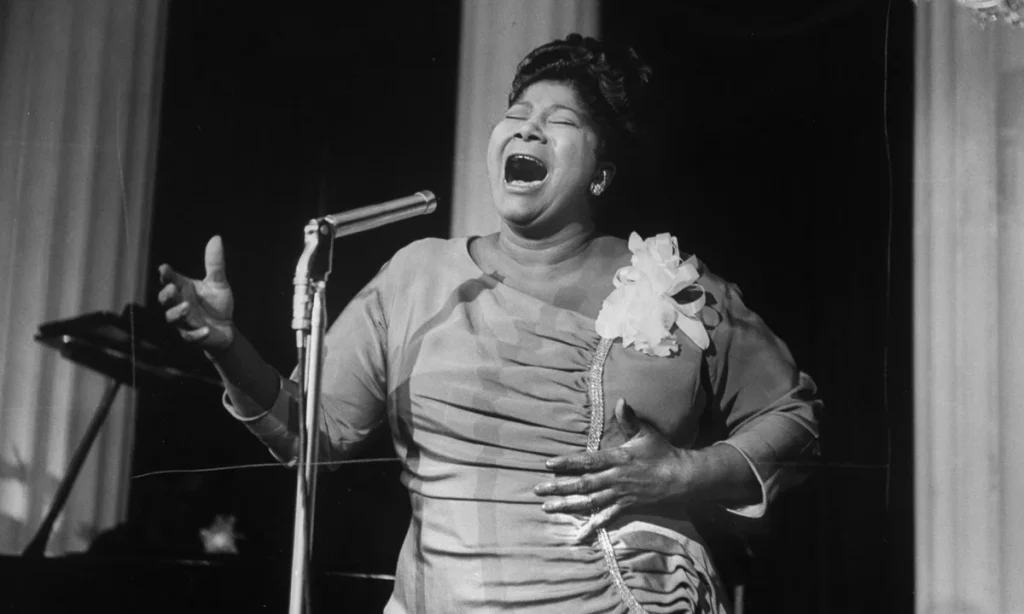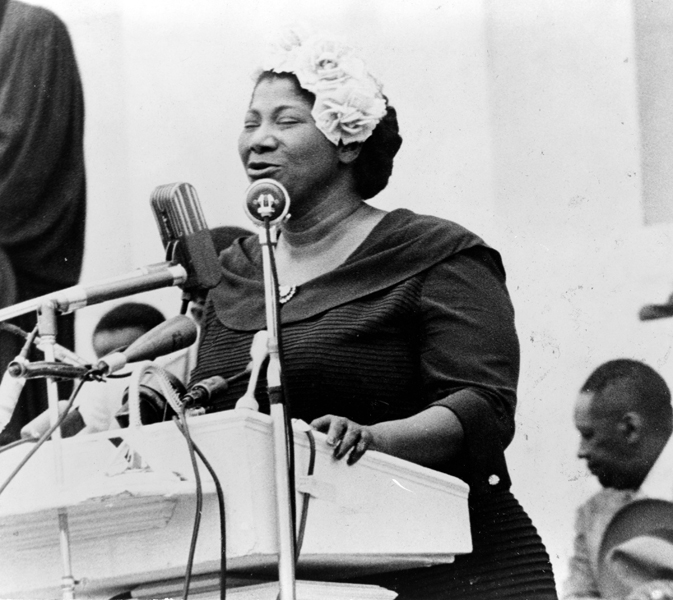As we celebrate Black History Month, Mahalia Jackson’s legacy reminds us of Black artists’ profound contributions to our culture and history.
Every year, National Black History Month allows us to honor the extraordinary contributions of Black Americans who have shaped our nation’s cultural, political, and spiritual fabric. Among these luminaries stands Mahalia Jackson, a gospel legend whose voice transcended music and became a force for change, inspiration, and unity.
Born on October 26, 1911, in New Orleans, Louisiana, Mahalia Jackson’s journey began in the pews of Mount Moriah Baptist Church, where she started singing at just four years old. Jackson was raised in a deeply religious Baptist household, where she sang in choirs during her upbringing. At 16, she relocated to Chicago, where she persisted in performing in small churches and traveled with a gospel group.
By the time she began her professional career, she had changed the spelling of her name to “Mahalia,” a small but significant step toward the iconic status she would later achieve. Influenced by blues legends like Bessie Smith and Ma Rainey, Jackson infused her gospel music with the raw emotion and soulfulness of the blues, creating a sound uniquely her own.
But Mahalia Jackson was more than just a singer—she was a phenomenon. Her voice, described as a “force of nature,” could move audiences to tears, uplift spirits, and inspire action. Dr. Martin Luther King Jr., who often called upon Jackson to perform at civil rights rallies, once said of her, “A voice like hers comes along once in a millennium.” And he wasn’t just talking about her vocal prowess. Jackson’s life and legacy were as powerful as her music, leaving an indelible mark on gospel, blues, rock and roll, and the fight for civil rights.

Photograph: Don Cravens/Getty Images
Mahalia Jackson’s voice was a bridge between the sacred and the secular. Her renditions of gospel classics like “How I Got Over,” “Move On Up a Little Higher,” and “Take My Hand, Precious Lord” became anthems of hope and resilience. Her music resonated far beyond the church, influencing artists across genres, from Aretha Franklin to Elvis Presley. Jackson’s ability to convey profound emotion through her singing made her a global sensation, earning her the title “The Queen of Gospel.”
Jackson’s impact extended beyond music. She was a close confidante of Dr. Martin Luther King Jr. and a passionate advocate for civil rights. Her performances at major events, including the 1963 March, where Dr. King delivered his iconic “I Have a Dream” speech, provided a spiritual backbone to the movement. Jackson’s music became a source of strength and solidarity for those fighting for equality, proving that art could be a powerful tool for social change.
Mahalia Jackson’s influence can still be felt today. Her recordings continue to inspire new generations of artists, and her story serves as a reminder of the power of perseverance and faith. In 1997, she was posthumously inducted into the Rock and Roll Hall of Fame, a testament to her enduring impact on American music.

Mahalia Jackson.
So, as we reflect on her incredible journey, let’s take a moment to listen to her music, share her story, and honor the Queen of Gospel who changed the world with her voice. Mahalia Jackson’s legacy is a reminder that art can move mountains, heal hearts, and inspire change—one note at a time.
“If you sing with your heart, it will reach the hearts of others.” – Mahalia Jackson.
